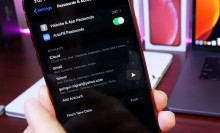Microsoft Office 365 Webmail Exposes User's IP Address in Emails
If you use Office 365's webmail interface to prevent email recipients from seeing your local IP address, you are out of luck. When sending email through Office 365, your local IP address will be injected into the message as an extra mail header.
Operating a web site and focusing on infosec related topics has made me a paranoid person. This leads me to send replies to stranger's emails via webmail so I do not expose my local IP address for security and to protect my privacy.













































































